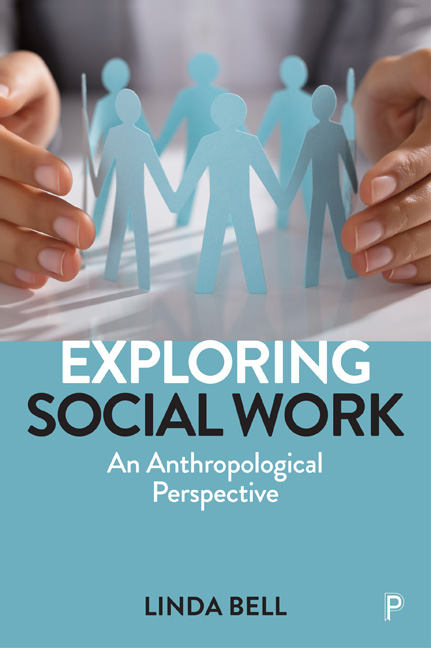Book contents
- Frontmatter
- Dedication
- Contents
- Acknowledgements
- Preface
- 1 Introducing Social Work: Who are Social Workers? Why do we Need Them?
- 2 Getting Involved: An Anthropological and Auto-Ethnographic Journey
- 3 Time and Change: UK Social Work and Comparative European Welfare Policies Since 1990
- 4 Becoming: Being Admitted, Educated and Trained in Social Work
- 5 Growing: Experiencing Social Work Education and Socialisation
- 6 Identifying
- 7 Valuing and Transgressing
- 8 Relating and Partnering: Social Workers, Clients/Service users and other Professionals
- 9 Knowing and Evidencing: Building a Research Base, Mapping and Modelling
- 10 Organising: Influences of the state, Organisations and Wider Social Policies
- 11 Symbolising: Cultural Representations in Theory and in Practice
- 12 Changing: The Future – Social Work in Wider Society
- References
- Index
3 - Time and Change: UK Social Work and Comparative European Welfare Policies Since 1990
Published online by Cambridge University Press: 04 March 2021
- Frontmatter
- Dedication
- Contents
- Acknowledgements
- Preface
- 1 Introducing Social Work: Who are Social Workers? Why do we Need Them?
- 2 Getting Involved: An Anthropological and Auto-Ethnographic Journey
- 3 Time and Change: UK Social Work and Comparative European Welfare Policies Since 1990
- 4 Becoming: Being Admitted, Educated and Trained in Social Work
- 5 Growing: Experiencing Social Work Education and Socialisation
- 6 Identifying
- 7 Valuing and Transgressing
- 8 Relating and Partnering: Social Workers, Clients/Service users and other Professionals
- 9 Knowing and Evidencing: Building a Research Base, Mapping and Modelling
- 10 Organising: Influences of the state, Organisations and Wider Social Policies
- 11 Symbolising: Cultural Representations in Theory and in Practice
- 12 Changing: The Future – Social Work in Wider Society
- References
- Index
Summary
‘the one constant thing in social work is that it's always changing.’
(Social worker, speaking in 2018)It is important that social work keeps a sense of being on the cusp, aware of the constraints and contradictions, moving forwards but never expecting to arrive. That is the key to an understanding that is both optimistic and realistic.
(Dickens, 2011: 36)Introduction
In the previous chapters, we identified that social and political change provides an essential foundation for how social work has developed, and how social workers are able (or perhaps unable) to act, in different places. This was indicated by the views and experiences of the key informant social workers and social work educators whom I have quoted in Chapters 1 and 2. Taking an anthropological perspective towards social work itself surely requires exploring contexts and chronology, especially in terms of changing professional and policy discourses.
Following up on these themes as expressed in published research and other documentary sources in this chapter (see, for example, University of Warwick, 2012; Burnham, 2011; Burnham, 2012), Harris (2008: 663, emphasis added), for example, sets out to counter:
[the] commonly encountered view of social work as a straightforward and widening response to human needs over time. Rather, in the account … provided, social work is regarded as having developed in particular conditions and in response to particular pressures; in other words, social work is a contingent activity, conditioned by and dependent upon the context from which it emerges and in which it engages.
For an anthropologist, the suggestion that social work inevitably has a contingent nature is an interesting and, I believe, useful starting point when examining policy and legislative issues and changes. My own gradual introduction to ‘social work’ in different places and times after 1990 also leads me to think that whether following up on social work education, ‘socialisation’, actions and ‘interventions’, or even social work ‘values’, I have not always and everywhere been walking along exactly ‘the same’ paths. Furthermore, while sometimes exciting, these experiences could also lead me personally into misunderstandings, wrong-footedness and insecurities. I think that social workers themselves (and those who come into contact with them) must also experience similar uncertainties, unless these changes can perhaps be anticipated and accommodated, ‘being aware of the constraints and contradictions’ can thus be seen as a strength rather than a weakness, as Dickens (2011) suggested earlier.
- Type
- Chapter
- Information
- Exploring Social WorkAn Anthropological Perspective, pp. 21 - 42Publisher: Bristol University PressPrint publication year: 2020



